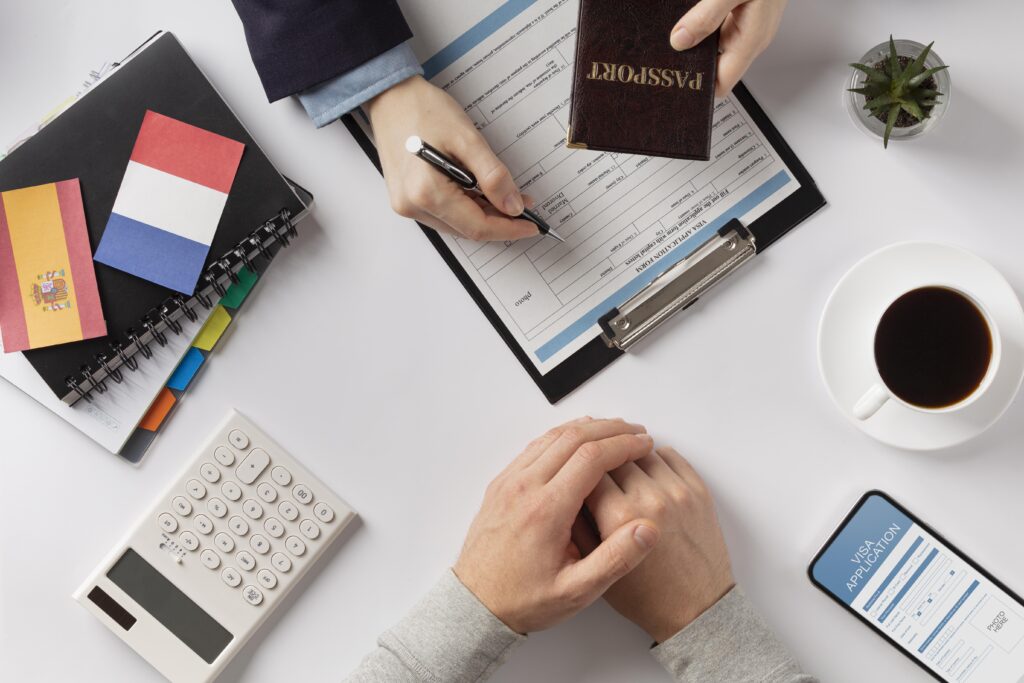- iqualifyabroad@gmail.com
- 0314 7791038
Student Visa
Home / Visa Detail

Study Visa
A student visa allows individuals to enter and stay in a foreign country to pursue educational studies. Key aspects include:
- Eligibility: Requires acceptance into an educational institution, proof of financial means, and sometimes a clean criminal record.
- Application: Involves completing an application form, providing documents like an acceptance letter, proof of finances, and a passport.
- Duration: Valid for the length of the study program, with options to extend or transition to other visas depending on the country and program.
- Conditions: Typically requires full-time enrollment and adherence to specific rules, such as limited work hours.
Business Visa Benefits
- Access to Quality Education
- Cultural Experience
- Networking Opportunities
- Work Opportunities
- Post-Graduation Options
- Improved Career Prospects
- Enhanced Personal Growth
Need a Visa Application?
Need a consulation? Call Us!
+92314 7791038
Email Us: admission.iqualifyabroad@gmail.com
Country
Free Online Assessment
Requirements Of Study/Student Visa
A study visa (or student visa) allows individuals to enter and stay in a foreign country for the purpose of pursuing educational studies. The specific requirements and process vary by country, but here’s a general guide to help you prepare:
1. Research Visa Requirements
- Check the country’s requirements: Visit the embassy or consulate website of the country where you plan to study to find detailed visa requirements.
- Understand the application process: Determine if you need to apply online, through a visa service, or in person.
2. Gather Required Documents
- Valid Passport: Ensure your passport is valid for the duration of your stay, with extra validity beyond your planned departure date.
- Completed Visa Application Form: Fill out the form accurately and completely.
- Acceptance Letter: Obtain an official acceptance letter from the educational institution where you have been accepted.
- Proof of Financial Means: Provide evidence that you can cover tuition fees and living expenses while studying. This might include bank statements, scholarship details, or financial guarantee letters.
- Proof of Accommodation: Show evidence of where you will be staying during your studies (e.g., rental agreement, university accommodation details).
- Visa Fee Payment: Pay the required visa fee as directed by the embassy or consulate.
3. Book an Appointment (if needed)
- Schedule an appointment: If required, book an appointment to submit your application or attend an interview at the embassy or consulate.
4. Prepare for the Visa Interview (if applicable)
- Be ready to explain: You may be asked about your study plans, career goals, and how you plan to support yourself financially.
- Bring supporting documents: Have all necessary documents organized and ready for the interview.
5. Submit Application
- Complete application: Ensure your application is complete and includes all required documents.
- Provide biometric data: Some countries require biometric data such as fingerprints or a photo as part of the application process.
6. Wait for Processing
- Track application status: Some countries offer online tracking services to check the status of your visa application.
- Be prepared for delays: Processing times can vary, so apply well in advance of your intended travel date.
7. Receive Your Visa
- Verify details: Check that the visa details are correct, including your name, study program, and duration of stay.
- Plan your travel: Make final travel arrangements and ensure you carry all required documents with you.
8. Prepare for Arrival
- Understand local regulations: Research and understand any rules or requirements specific to student visa holders in the destination country.
- Plan your arrival: Know where to report or check-in upon arrival, if required by your institution or visa regulations.
- Arrange health insurance: Some countries require proof of health insurance coverage for the duration of your stay.
9. During Your Stay
- Maintain your visa status: Adhere to visa conditions, including maintaining full-time enrollment and not working beyond permitted limits (if applicable).
- Stay in contact with your institution: Keep your educational institution informed of any changes in your circumstances or contact details.

How Do Test Preperation
Effective test preparation involves a combination of planning, study techniques, and mental readiness. Here’s a step-by-step guide to help you prepare:
1. Understand the Test Format
- Familiarize with the structure: Know the types of questions (multiple choice, essay, etc.), sections, and time limits.
- Review syllabus: Understand what topics will be covered and focus on them.
2. Create a Study Plan
- Set a schedule: Allocate specific times for studying each topic based on the test date and the subject’s difficulty.
- Break it into chunks: Study in small, manageable sections rather than cramming all at once.
3. Gather Study Materials
- Use textbooks, notes, and online resources: Organize all the material you need for studying.
- Practice papers: Get sample tests or past papers to understand the format and difficulty level.
4. Use Study Techniques
- Active Recall: Test yourself by trying to recall information without looking at the material.
- Spaced Repetition: Review material periodically over increasing intervals of time to improve retention.
- Summarization and note-taking: Rewrite key concepts in your own words for better understanding.
- Mind Mapping: Create diagrams linking concepts together for visual learners.
5. Practice with Mock Tests
- Simulate test conditions: Set a timer and complete practice tests in an environment similar to the actual exam.
- Review answers: After taking a mock test, thoroughly review the answers to learn from mistakes.
6. Group Study
- Collaborate with peers: Discussing topics with others can clarify doubts and reinforce learning.
- Teach others: Explaining a concept to someone else is one of the best ways to master it.
7. Healthy Habits
- Rest and sleep: Ensure you get adequate rest, especially the night before the test.
- Balanced diet: Eat healthy foods that improve focus and energy.
- Stay calm: Practice relaxation techniques like deep breathing or meditation to reduce anxiety.
8. On Test Day
- Arrive early: Ensure you’re on time with all necessary materials (e.g., ID, pencils, calculators).
- Read instructions carefully: Take your time understanding each section before diving in.
- Pace yourself: Manage your time wisely during the test, ensuring you leave time for revision.
Visa Application
Contact Us if You Are Looking for a Visa Application
Need a consultation? Call us!
+92314 7791038
Email us:
admission.iqualifyabroad@gmail.com
